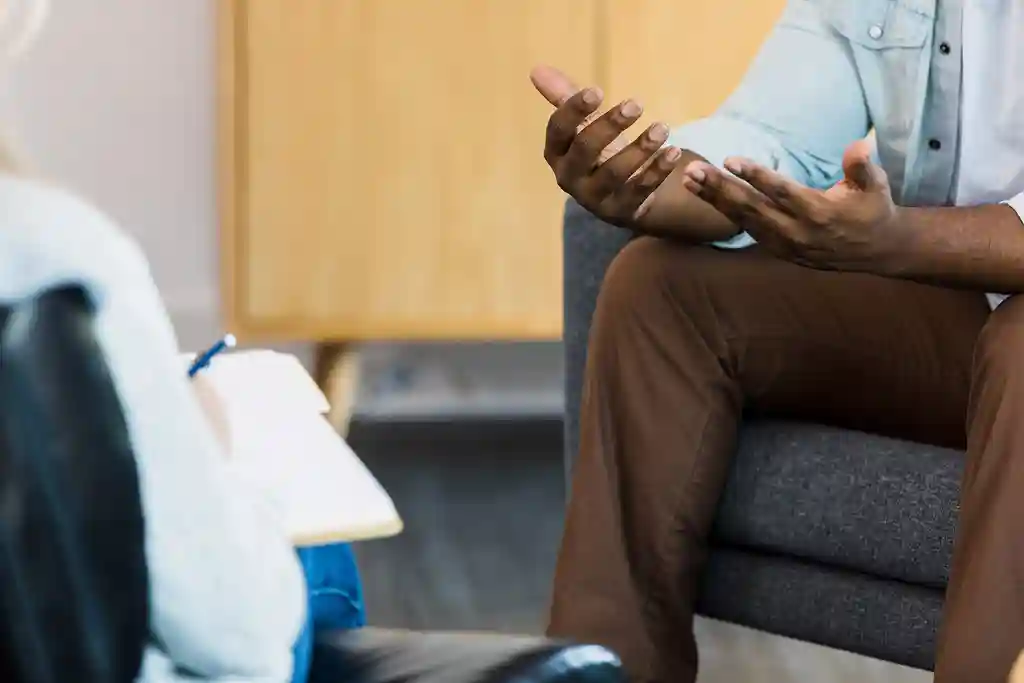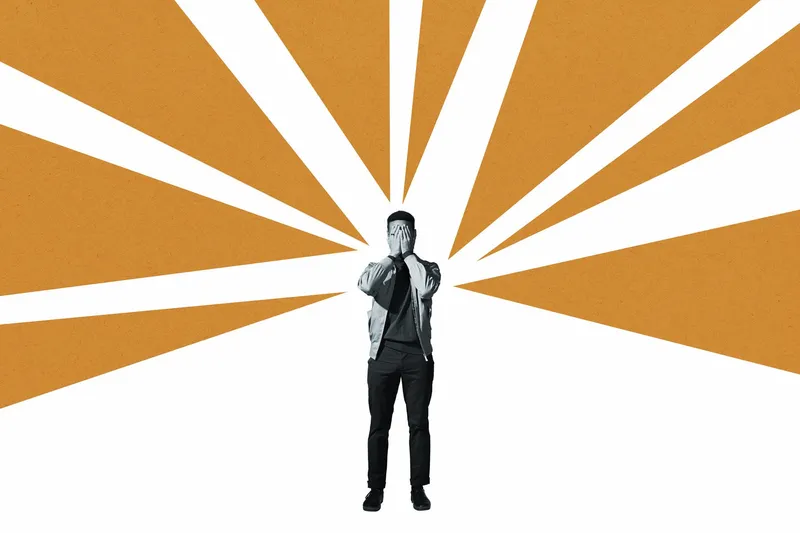
Stigma is a real phenomenon and often wreaks havoc in the lives of those it comes in contact with. This is certainly true when it comes to living with HIV. Unfortunately, it’s also true when discussing the idea of seeing a therapist and mental health in general.
In my case, one led to the other in the spring of 2008. When my HIV specialist first suggested that I consider beginning therapy, I was anything but open to the idea. In hindsight (as was the case with my HIV origin story), I now know that it was all by design.
Looking back now, it all makes much more sense, especially given the fact that within the year leading up to April 2008, I recall having two separate conversations with close friends of mine about the importance of therapy. Even though my friends, who both also are Black gay men, spoke some very real truths about the benefits of seeing a therapist, I can admit that I was still removed from the idea. As a result, much of what they said fell on deaf ears. I knew everything being said was true, I just didn’t think it was true FOR ME.
By the time spring 2008 rolled around, I’d been living with HIV for nearly 3.5 years. Although I had overcome more than my share of challenges and hurdles, there was still a lot that came with the experience of being HIV positive that I had yet to conquer. Taking medication for treatment purposes was right at the top of that list.
If I’m being completely honest, since learning that I was positive in November 2004, I secretly held this notion in my mind that as long as I didn’t have to take antiretroviral medication to treat my condition, it wasn’t “real.” As foolish as that sounds now, it was a coping mechanism that served me well until it didn’t anymore.
For those first 3.5 years, my doctor checked and monitored my numbers (CD4 count and viral load) closely each time I would visit, which from what I can recall was about three to four times per year. However, when I went for a routine checkup in March 2008, my doctor “ripped the bandage off” in a manner of speaking when she told me that although my numbers were good, the ultimate goal was for me to get to “undetectable.”
What this means is that antiretroviral treatment has reduced your HIV to such small quantities that it can no longer be detected by standard blood tests. With that news, I knew I could no longer avoid taking medication. Once my doctor and I began seriously discussing the options for treatment regimens, she also encouraged me yet again to consider seeing a therapist. Unlike previous times, however, I didn’t resist. To say I was frightened would be an understatement. I didn’t know what I was signing up for, but I knew that what would be on the other side of it all was going to benefit me.
In the beginning of that journey with taking medication, many of the fears I had about side effects and serious changes in my body had indeed come to pass. But fortunately all of that was temporary. A little over a month after starting treatment, my doctor revealed the news that I had in fact reached the goal of becoming undetectable, which was news I was relieved to learn. Additionally (just as my doctor predicted) I had a wellspring of new thoughts, feelings, and emotions about the experience I was slowly, albeit successfully, moving through.
To that end, my first round of therapy sessions couldn’t have come at a better time. What slowly began as a new and unfamiliar experience quickly became something that I’ve come to rely upon as a means of support, release, and necessity. Those 50-minute sessions became my refuge. In therapy, I’m able to connect the dots of my past to my present, pour everything out, process, and be vulnerable. Most importantly, I feel safe -- something therapy has helped me recognize I’ve felt a lack of for a long time.
There are still moments of frustration, sadness, confusion, fear, and so many other emotions that we all face. Most recently, living and surviving the last 18 months within this pandemic has proven to be challenging to say the least. The silver lining in all of it has been therapy and all of the tools I’ve developed along the way.
In the 13 years since I embarked upon the mental health journey, life has opened up and become far more manageable simply because I took the revolutionary, albeit frightening, step of advocating for myself and admitting that I needed help.
Like so many others, for so long I thought there was shame in such an admission. But once I let that go -- and as I became more insistent upon taking time for myself each week in the form of my sessions with a licensed professional, to talk about ME -- miraculous things started to happen.
Just like the lives we lead, it’s an ongoing process of discovery and management, which means doing the work in and out of my therapist’s office. Therapy isn’t a magic pill. It doesn't provide instantaneous results. It’s about trust, commitment, courage, and a desire to heal, grow and thrive.
Photo Credit: SDI Productions / E+ via Getty Images
Important:The opinions expressed in WebMD Blogs are solely those of the User, who may or may not have medical or scientific training. These opinions do not represent the opinions of WebMD. Blogs are not reviewed by a WebMD physician or any member of the WebMD editorial staff for accuracy, balance, objectivity, or any other reason except for compliance with our Terms and Conditions. Some of these opinions may contain information about treatments or uses of drug products that have not been approved by the U.S. Food and Drug Administration. WebMD does not endorse any specific product, service or treatment.
Do not consider WebMD Blogs as medical advice. Never delay or disregard seeking professional medical advice from your doctor or other qualified healthcare provider because of something you have read on WebMD. You should always speak with your doctor before you start, stop, or change any prescribed part of your care plan or treatment. WebMD understands that reading individual, real-life experiences can be a helpful resource, but it is never a substitute for professional medical advice, diagnosis, or treatment from a qualified health care provider. If you think you may have a medical emergency, call your doctor or dial 911 immediately.









